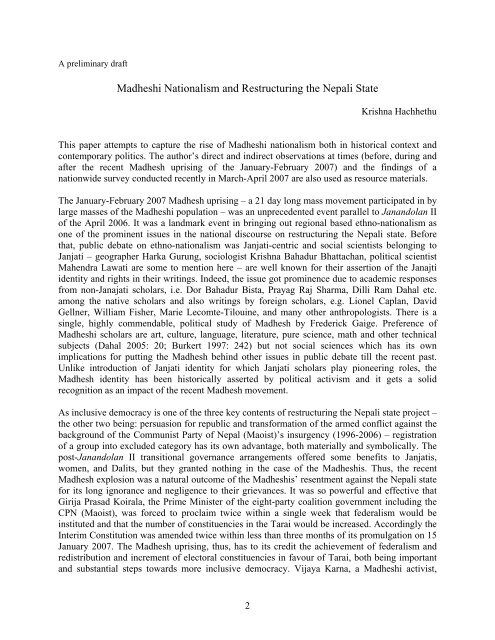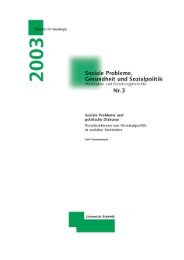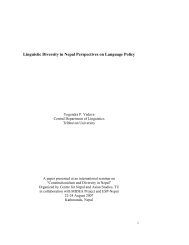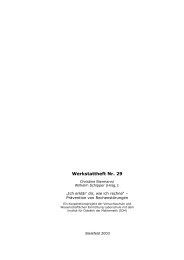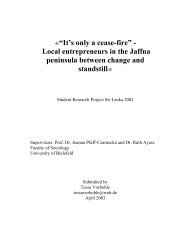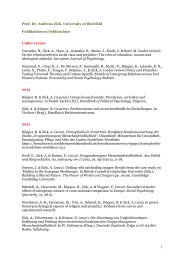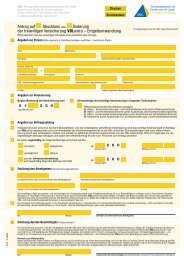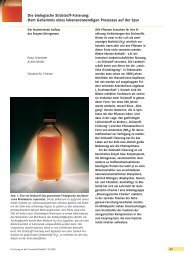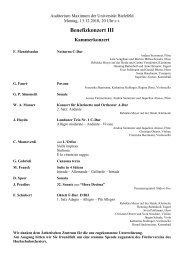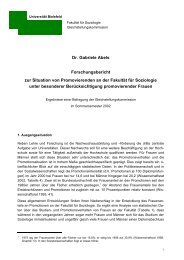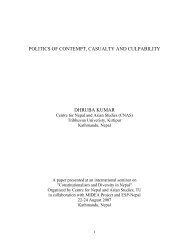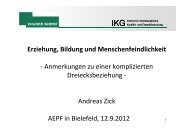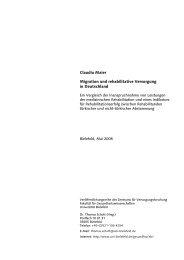Madheshi Nationalism and Restructuring the Nepali State
Madheshi Nationalism and Restructuring the Nepali State
Madheshi Nationalism and Restructuring the Nepali State
You also want an ePaper? Increase the reach of your titles
YUMPU automatically turns print PDFs into web optimized ePapers that Google loves.
A preliminary draft<br />
<strong>Madheshi</strong> <strong>Nationalism</strong> <strong>and</strong> <strong>Restructuring</strong> <strong>the</strong> <strong>Nepali</strong> <strong>State</strong><br />
2<br />
Krishna Hachhethu<br />
This paper attempts to capture <strong>the</strong> rise of <strong>Madheshi</strong> nationalism both in historical context <strong>and</strong><br />
contemporary politics. The author’s direct <strong>and</strong> indirect observations at times (before, during <strong>and</strong><br />
after <strong>the</strong> recent Madhesh uprising of <strong>the</strong> January-February 2007) <strong>and</strong> <strong>the</strong> findings of a<br />
nationwide survey conducted recently in March-April 2007 are also used as resource materials.<br />
The January-February 2007 Madhesh uprising – a 21 day long mass movement participated in by<br />
large masses of <strong>the</strong> <strong>Madheshi</strong> population – was an unprecedented event parallel to Jan<strong>and</strong>olan II<br />
of <strong>the</strong> April 2006. It was a l<strong>and</strong>mark event in bringing out regional based ethno-nationalism as<br />
one of <strong>the</strong> prominent issues in <strong>the</strong> national discourse on restructuring <strong>the</strong> <strong>Nepali</strong> state. Before<br />
that, public debate on ethno-nationalism was Janjati-centric <strong>and</strong> social scientists belonging to<br />
Janjati – geographer Harka Gurung, sociologist Krishna Bahadur Bhattachan, political scientist<br />
Mahendra Lawati are some to mention here – are well known for <strong>the</strong>ir assertion of <strong>the</strong> Janajti<br />
identity <strong>and</strong> rights in <strong>the</strong>ir writings. Indeed, <strong>the</strong> issue got prominence due to academic responses<br />
from non-Janajati scholars, i.e. Dor Bahadur Bista, Prayag Raj Sharma, Dilli Ram Dahal etc.<br />
among <strong>the</strong> native scholars <strong>and</strong> also writings by foreign scholars, e.g. Lionel Caplan, David<br />
Gellner, William Fisher, Marie Lecomte-Tilouine, <strong>and</strong> many o<strong>the</strong>r anthropologists. There is a<br />
single, highly commendable, political study of Madhesh by Frederick Gaige. Preference of<br />
<strong>Madheshi</strong> scholars are art, culture, language, literature, pure science, math <strong>and</strong> o<strong>the</strong>r technical<br />
subjects (Dahal 2005: 20; Burkert 1997: 242) but not social sciences which has its own<br />
implications for putting <strong>the</strong> Madhesh behind o<strong>the</strong>r issues in public debate till <strong>the</strong> recent past.<br />
Unlike introduction of Janjati identity for which Janjati scholars play pioneering roles, <strong>the</strong><br />
Madhesh identity has been historically asserted by political activism <strong>and</strong> it gets a solid<br />
recognition as an impact of <strong>the</strong> recent Madhesh movement.<br />
As inclusive democracy is one of <strong>the</strong> three key contents of restructuring <strong>the</strong> <strong>Nepali</strong> state project –<br />
<strong>the</strong> o<strong>the</strong>r two being: persuasion for republic <strong>and</strong> transformation of <strong>the</strong> armed conflict against <strong>the</strong><br />
background of <strong>the</strong> Communist Party of Nepal (Maoist)’s insurgency (1996-2006) – registration<br />
of a group into excluded category has its own advantage, both materially <strong>and</strong> symbolically. The<br />
post-Jan<strong>and</strong>olan II transitional governance arrangements offered some benefits to Janjatis,<br />
women, <strong>and</strong> Dalits, but <strong>the</strong>y granted nothing in <strong>the</strong> case of <strong>the</strong> <strong>Madheshi</strong>s. Thus, <strong>the</strong> recent<br />
Madhesh explosion was a natural outcome of <strong>the</strong> <strong>Madheshi</strong>s’ resentment against <strong>the</strong> <strong>Nepali</strong> state<br />
for its long ignorance <strong>and</strong> negligence to <strong>the</strong>ir grievances. It was so powerful <strong>and</strong> effective that<br />
Girija Prasad Koirala, <strong>the</strong> Prime Minister of <strong>the</strong> eight-party coalition government including <strong>the</strong><br />
CPN (Maoist), was forced to proclaim twice within a single week that federalism would be<br />
instituted <strong>and</strong> that <strong>the</strong> number of constituencies in <strong>the</strong> Tarai would be increased. Accordingly <strong>the</strong><br />
Interim Constitution was amended twice within less than three months of its promulgation on 15<br />
January 2007. The Madhesh uprising, thus, has to its credit <strong>the</strong> achievement of federalism <strong>and</strong><br />
redistribution <strong>and</strong> increment of electoral constituencies in favour of Tarai, both being important<br />
<strong>and</strong> substantial steps towards more inclusive democracy. Vijaya Karna, a <strong>Madheshi</strong> activist,


